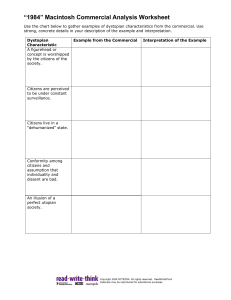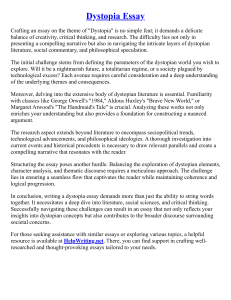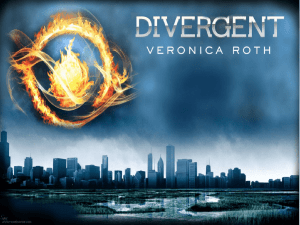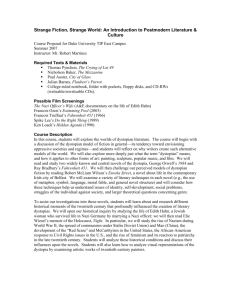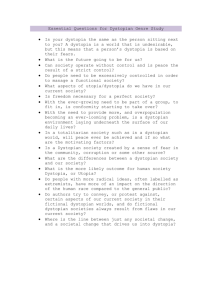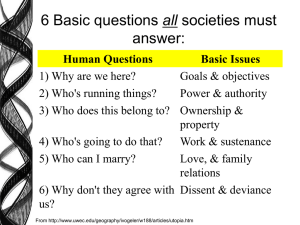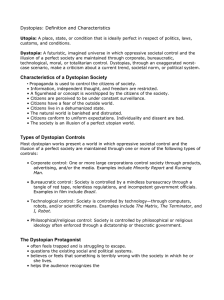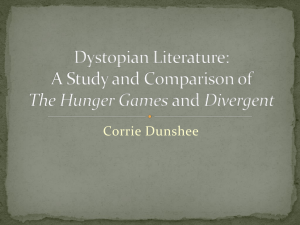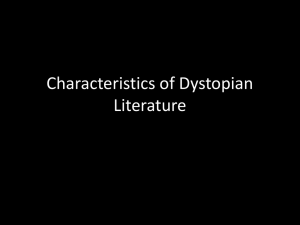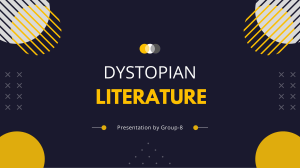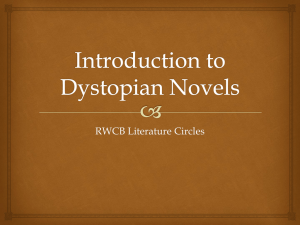Traits of dystopian fiction
advertisement
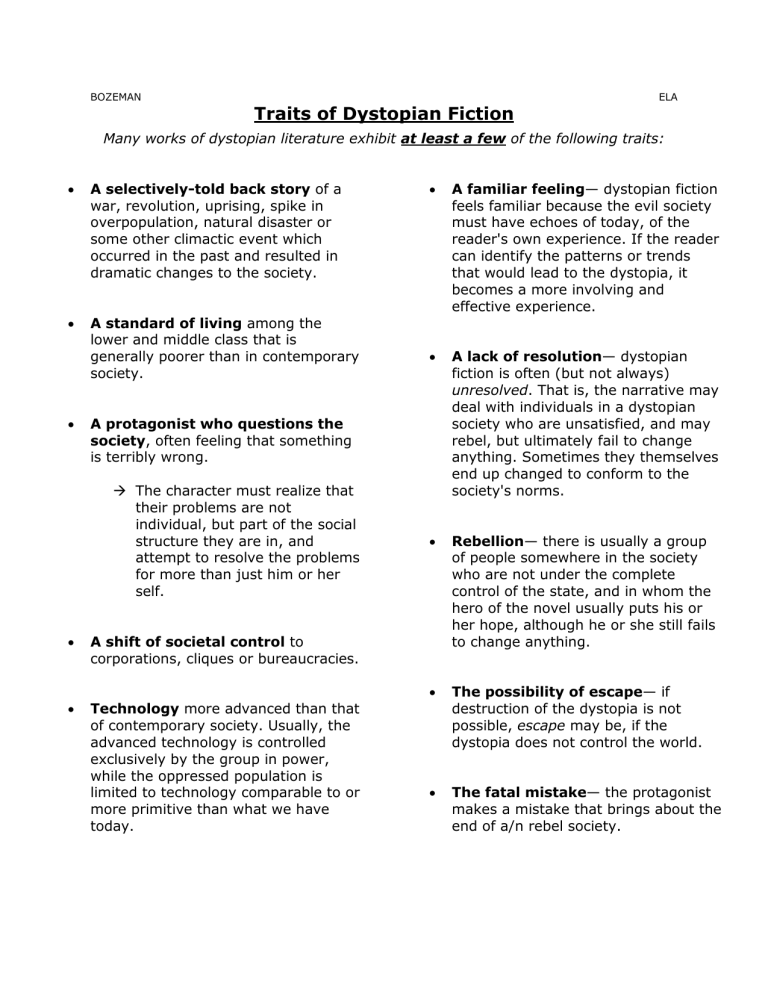
BOZEMAN Traits of Dystopian Fiction ELA Many works of dystopian literature exhibit at least a few of the following traits: A selectively-told back story of a war, revolution, uprising, spike in overpopulation, natural disaster or some other climactic event which occurred in the past and resulted in dramatic changes to the society. A standard of living among the lower and middle class that is generally poorer than in contemporary society. A familiar feeling— dystopian fiction feels familiar because the evil society must have echoes of today, of the reader's own experience. If the reader can identify the patterns or trends that would lead to the dystopia, it becomes a more involving and effective experience. A lack of resolution— dystopian fiction is often (but not always) unresolved. That is, the narrative may deal with individuals in a dystopian society who are unsatisfied, and may rebel, but ultimately fail to change anything. Sometimes they themselves end up changed to conform to the society's norms. Rebellion— there is usually a group of people somewhere in the society who are not under the complete control of the state, and in whom the hero of the novel usually puts his or her hope, although he or she still fails to change anything. The possibility of escape— if destruction of the dystopia is not possible, escape may be, if the dystopia does not control the world. The fatal mistake— the protagonist makes a mistake that brings about the end of a/n rebel society. A protagonist who questions the society, often feeling that something is terribly wrong. The character must realize that their problems are not individual, but part of the social structure they are in, and attempt to resolve the problems for more than just him or her self. A shift of societal control to corporations, cliques or bureaucracies. Technology more advanced than that of contemporary society. Usually, the advanced technology is controlled exclusively by the group in power, while the oppressed population is limited to technology comparable to or more primitive than what we have today.
